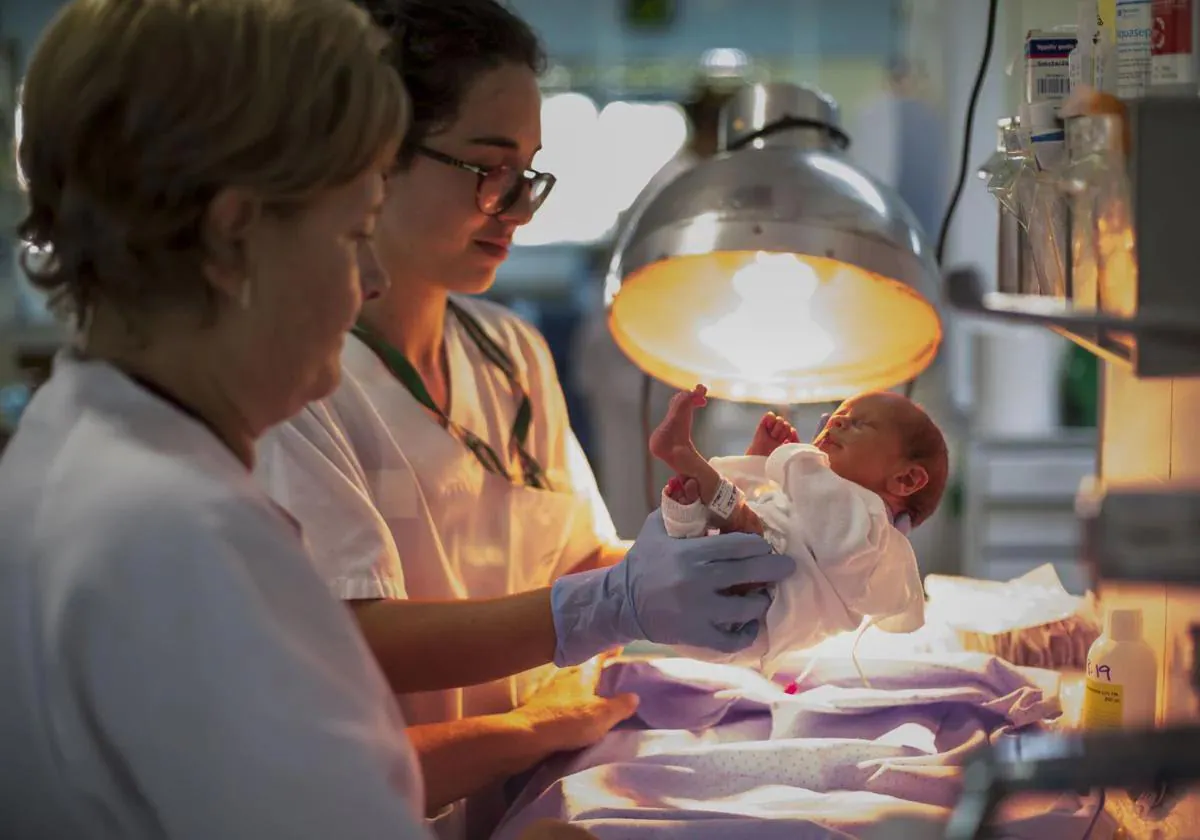Nine out of ten babies vaccinated against bronchiolitis during first campaign in Spain
The jab against the respiratory syncytial virus, of which 277,000 doses were administered, has prevented an estimated 10,000 hospital admissions of children
Nine out of ten babies born between 1 April 2023 and 31 March this year in Spain have been vaccinated for bronchiolitis.
The babies were inoculated as part of the first phase of a national vaccine rollout against respiratory syncytial virus (RSV). They received nirsevimab, the first antibody needed to prevent bronchiolitis, the disease caused by RSV.
The ministry of health said 277,000 doses were administered which prevented 10,000 hospitalisations, 75% of the expected number. Before the vaccine was introduced, between 7,000 and 14,000 hospitalisations for bronchiolitis were recorded each year, with peaks in winter.
Various Spanish regions have already begun to prepare the new vaccination campaign for this autumn. All of them have been acquiring doses and some, such as Madrid, will open tele-appointments for the vaccination, which will begin on 1 October.
What is bronchiolitis?
Bronchiolitis is a build-up of mucus in the smallest airways in the lungs which causes swelling. RSV, the virus that causes bronchiolitis, is spread through direct contact or through droplets in the air when someone who is sick coughs, sneezes or talks. The disease, which affects children under the age of two, with a peak age of three to six months, has long been the leading cause of hospitalisation for respiratory infection in children under 12 months each year in the autumn-winter season.
But since last year, the vaccine nirsevimab, which is claimed 80% effective in preventing admissions, is changing the scenario. Authorised on 31 October 2022 by the European Union, the public health commission of the ministry of health approved its use for the 2023-2024 season despite the reluctance of some regions, which disagreed as to whether all babies should receive it or only those under six months of age. Doubts have since been dispelled and all children under one year of age can have access to the vaccine, which is financed by the public health system.
"The vaccine has been a revolution. Spain has been one of the three countries, along with France and the United States, that have opted for this vaccine and the results are enormously positive," the president of the Spanish vaccinology association, Jaime Jesús Pérez, said. "Our goal is to reach 100% vaccination. We are seeing how it works in the short term to reduce hospital admissions and visits to primary care. And soon we will be able to see if this vaccine also helps to reduce the number of three- or four-year-old children suffering from asthma who avoided infection when they were babies," Pérez added.
"Good safety profile"
According to ministry of health documents, the vaccine has demonstrated "a good safety profile". Less than 1% of those vaccinated have side effects, with the most adverse reactions being reactions at the injection site (pain, redness and swelling) and fever.
Once widespread among infants, the ministry of health now plans to extend its use to all pregnant women in the coming campaigns, although it is currently available in pharmacies on private prescription. In addition, the European Union has just approved mResvia, a vaccine against RSV that uses messenger RNA, the first vaccine other than Covid-19 to use this, for use in people over 60 years of age (adults also suffer from the disease).
The introduction of coronavirus in 2020 represented a radical change in the surveillance of respiratory viruses. The fact that the coronavirus was the main cause of infection, confinement and the use of masks led to an imbalance that was felt in the following years. In autumn of 2022, with prevention measures already reduced and the return to normality in schools and in the street, bronchiolitis became an epidemic among children that almost caused a collapse in paediatric emergency departments, with 40% more cases than usual.

